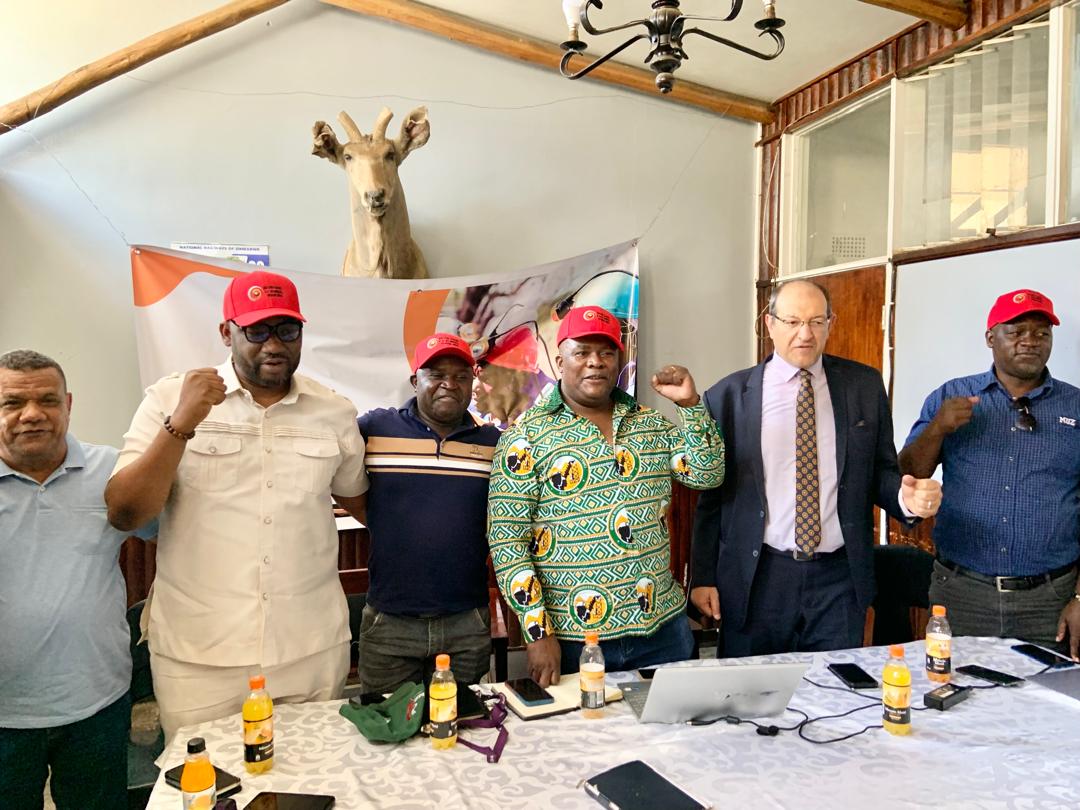Some mine workers’ unions across Africa have voiced their concerns over foreign investments, particularly those by Chinese companies, accusing them of extracting resources without reinvesting in the host countries.
Speaking at a press conference held at the Bulawayo Media Centre on Wednesday, union leaders emphasised the need for African countries to reclaim control over their mineral resources and make sure that foreign investments contribute to local development.
General Secretary of the Zimbabwe Diamond and Allied Minerals Workers Union (ZDAMWU), Justice Chinhema, highlighted the unions’ collective goal to have mining workers recognised as key stakeholders in determining the future of Africa’s mining sector.
“For too many years, Africa has been marginalised. Our mineral resources are for Africans, and it’s time we take stock of how our governments are bringing in investors,” Chinhema said.
Chinhema, also the assistant Secretary General of African Federation of Miners, said foreign investors should not merely extract resources but also contribute to the development of Africa’s communities and its workers.
“We want to take stock of our governments on how they are bringing investors to our countries. We are calling for investors not to loot our resources but as workers who come to mine and also recognise that they must also develop Africa, our communities and ourselves as miners.”
Chinhema’s sentiments comes as ZDAMWU is set to host its national congress from August 29 to 31, 2024 in Bulawayo, bringing together over 250 members from across Zimbabwe’s mining regions and 60 delegates from local unions.
Representation from other African countries includes workers unions from Ghana, Zambia, Egypt and other African countries, whose aim is to forge a unified voice among African mine workers, focusing on their rights and interests.
“We are calling for stronger unity among African mine workers’ unions so that mineral wealth benefits locals rather and as unions we pledge to continue their fight for fair labour practices and better wages,” Chinhema said.
Ghana Mine Workers Union General Secretary Abdul-Moomin Gbana, speaking in solidarity with Zimbabwean colleagues, noted that challenges faced by African mining sectors are consistent across the continent.
“The sorry nature of the mining sector across Africa is one and the same. The problems of Ghana are not different from the problems of Zimbabwe, Egypt, Zambia, Namibia and Botswana. We have all the mineral resources in this continent. Unfortunately we are eating crumbs,” Gbana said.
“We are here to demonstrate symbolism, and believe if we collectively push that cause every country in Africa will benefit.”
Gbana also criticised the Chinese “scramble” for African resources, describing it as a new form of colonisation.
“The Chinese scramble for our resources in Africa by the Chinese is a grand scheme calculated not just by the Chinese but by the East to ensure they invade all our economies across Africa, and in fact recolonise us from the Europeans. We need to make sure to extricate the Chinese investments because they are not the best of investments,” claimed the Ghanaian union leader.
“If you come with your investment you repatriate whatever you came with and in addition to that you actually put workers and citizens of these countries under so much exploitation, and who is going to sit back and allow that to happen. So it’s important we work together and solidarity is extremely crucial.”
Gbana added that the difficulties of Chinese investment presence in Zimbabwe is the same in Ghana and “virtually” across Africa.
“But if we work together through policy, legislation we will be eradicating one common problem of Chinese presence, their dominance and exploitation,” he said.
Deputy General Secretary of the Mine Workers Union of Zambia, John Silungwe, echoed these sentiments, stressing the need for a fair distribution of profits generated from Africa’s resources. “We cannot afford to continue to give money away to investors that we bring into our countries. We are bringing them to bring investment and not take all that we are producing to their countries. We need to share the profits that they are making from our resources,” he said.
Silungwe cited the example of the Democratic Republic of Congo, where unions and the government have successfully managed foreign investments to benefit local workers, a model he believes should be replicated across Africa.
“Last week we were in Congo, where we thought if we inculcate what we saw there in all the African countries, we can be able to manage these Chinese. We saw a mine where they’ve been managed, we saw where unions are working together with the government to make sure salaries obtaining in that company are the same across all employees but it is not the case in Zambia,” Silungwe said.
“Salaries obtaining in all Chinese operations in Zambia are pathetic. No one is willing to work except if they don’t have an option on where they could go. They are working under Chinese investments because they have no option. We need jobs but we need decent jobs, and that’s the reason why we need to work together to fight these Chinese and have better Chinese investments.”
Assistant Treasurer of the African Federation of Miners and Mineral Wealth, Ashraf Shehata, from Egypt, expressed his union’s support for Zimbabwe’s efforts to address these issues.
“We bring maximum support from our union and wish for the success of Zimbabwe. As mine workers unions in Egypt, we have confidence and are behind you. Go forward and we are behind you,” Shehata said through an interpreter, Kamel Khedr from the Egyptian mine workers union.


These abusive Chinese mining operations are are sanctioned by ZANU PF..